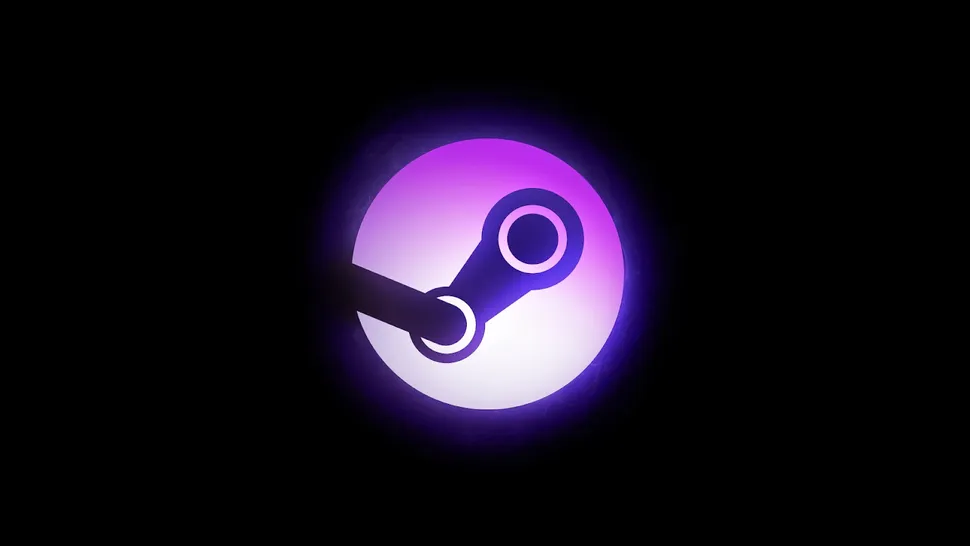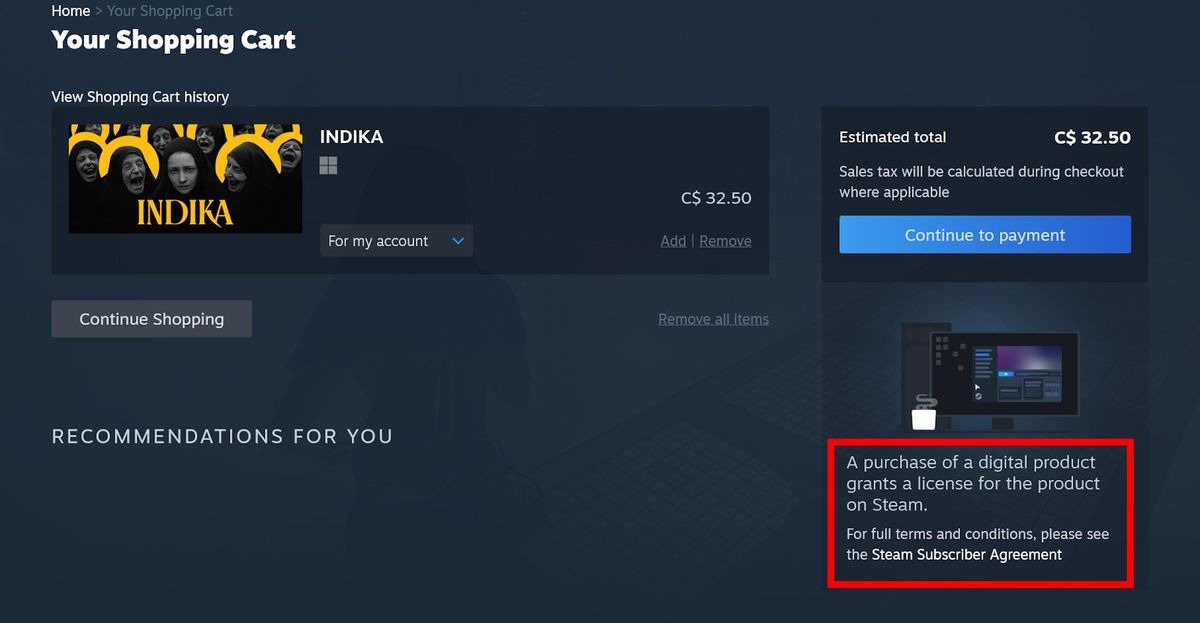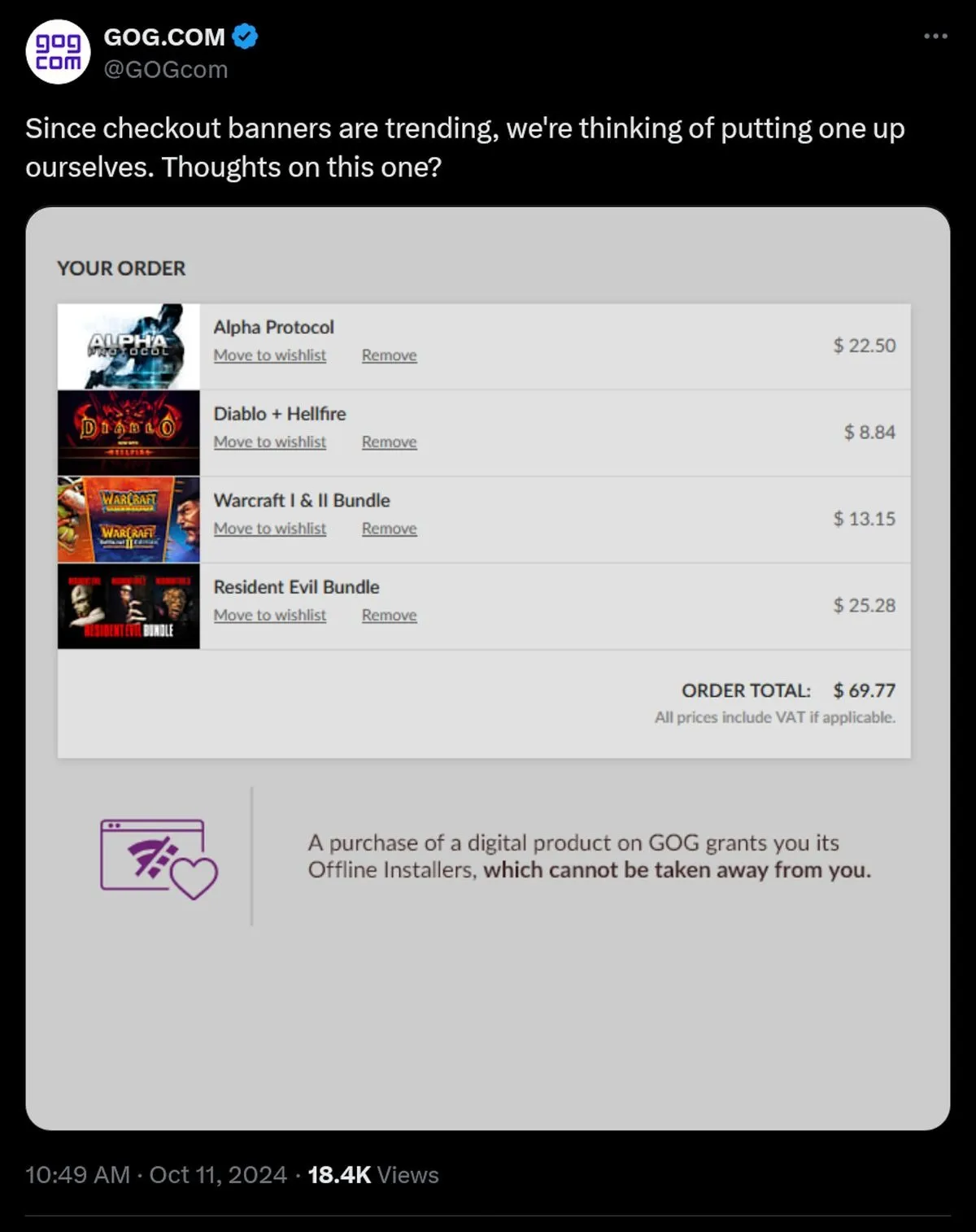Steam's New Disclaimer Highlights Game Ownership Issues
2024-10-14 12:11:36Source:40407Author:40407
Steam has recently updated its shopping cart page to include a notable disclaimer that clarifies the nature of your purchases: you are not buying a game; you are acquiring a license.

The new message succinctly states, “A purchase of a digital product grants a license for the product on Steam,” and it includes a link to the complete Steam Subscriber Agreement. This adjustment follows Valve's recent revision of its subscriber agreement, which removed a previously mandatory arbitration clause.
While the disclaimer may seem fresh, the underlying reality has long been established. A practical way to grasp the extent of your “ownership” is to simply forget your Steam password; this will give you a temporary yet striking insight into the precariousness of your game library. Alternatively, if you're feeling daring, you could repeatedly breach Steam's rules to have your account—and all of your “owned” games—permanently revoked. Moreover, players cannot pass down their Steam libraries after death, a privilege that true ownership would typically allow.

Debates over digital ownership rights have persisted for years. A 2012 thread on Hacker News cautioned users to examine the Steam subscriber agreement closely, as purchases made through the platform are licenses rather than actual ownership. One user, just2n, remarked, “While Steam offers ease of use, allowing software downloads on any computer and occasional discounts, I question whether sacrificing the right to own purchased items is a fair exchange for that convenience.”
Given that the concept of ownership on Steam is not new, why the sudden disclaimer? Many speculate that it stems from increased backlash against game publishers who have ceased support for online games, often rendering them unplayable and sometimes revoking user licenses altogether. Ubisoft's recent decision to shut down services for The Crew and revoke licenses ignited a consumer campaign dubbed "Stop Killing Games," leading to the enactment of a new California law. This legislation mandates that retailers inform consumers that digital games can be revoked at any time—exactly what Steam's new message conveys.

Although this law currently applies only in California, it could inspire similar regulations in other states and countries. In light of these potential legal challenges and the complexities of navigating compliance on a state-by-state basis, Valve’s straightforward approach makes sense: display this disclaimer to all users at all times. While it won't prevent the revocation of your games, it does provide a layer of legal protection for companies that enforce such measures. After all, with the convenience that Steam offers, isn’t that the main concern?
In response to the ongoing discussions about ownership, GOG has also crafted its own checkout message, emphasizing the advantages of its offline installers, which cannot be taken away from users.
Related Articles
-

Unleash Your Imagination – Create Stunning Emojis with AI Emoji
2025-11-11
-

Welcome to the Future of Mobile Casino Games: AI Meets the Best Casino Experience!
2025-08-29
-

NTR Knight Gameplay & Guide Videos
2025-08-27
-

Lustworth Academy Gameplay & Guide Videos
2025-08-27
-

Jikage Rising Guide & Gameplay Videos
2025-08-26
-

Attack on Survey Corps Walkthrough & Gameplay Videos
2025-08-26
-

The Most Complete Guide for Poker Enthusiasts – What Every Player Should Know
2025-08-25
-

Gacha Cummy Gameplay & Guide Videos
2025-08-25
-

RuleUniverse Gameplay & Guide Videos
2025-08-25
-

Learn How to Win, Crush & Conquer Coin Mobile Games
2025-08-21


